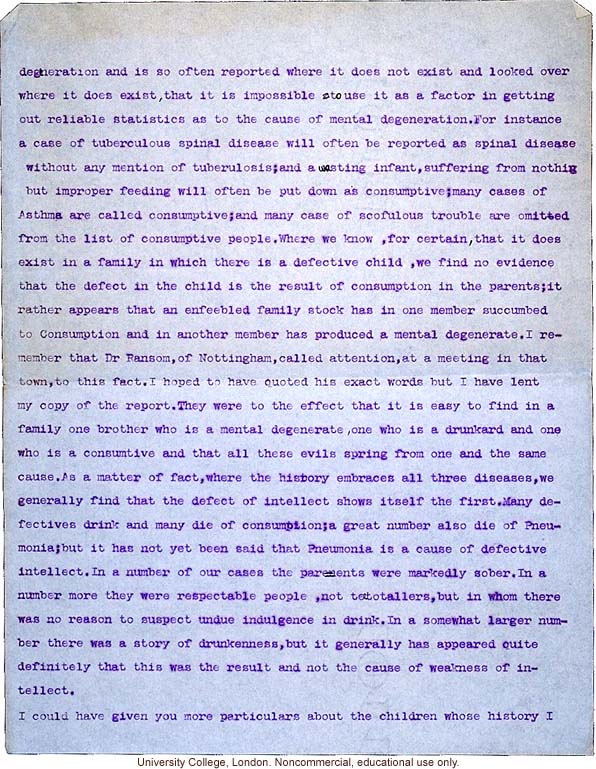degeneration and is so often reported where it does not exist and looked over where it does exist, that it is impossible to use it as a factor in getting out reliable statistics as to the cause of mental degeneration. For instance a case of tuberculosis spinal disease will often be reported as spinal disease without any mention of tuberculosis; and a wasting infant, suffering from nothing but improper feeding will often be put down as consumptive; many cases of Asthma are called consumptive; and many case[sic] of scrofulous[sic] trouble are omitted from the list of consumptive people. Where we know, for certain, that it does exist in a family in which there is a defective child, we find no evidence that the defect in the child is the result of consumption in the parent; it rather appears that an enfeebled family stock has in one member succumbed to Consumption and in another member has produced a mental degenerate. I remember that Dr. Ransom, of Nottingham, called attention, at a meeting in that town, to this fact. I hoped to have quoted his exact words but I have lent my copy of the report. They were to the effect that it is easy to find in a family one brother who is a mental degenerate, one who is a drunkard and one who is a consumptive and that all these evils spring from one and the same cause. As a matter of fact, where the history embraces all three diseases, we generally find that the defect of intellect shows itself the first. Many defectives drink and many die of consumption; a great number also die of pneumonia; but it has not been said that Pneumonia is a cause of defective intellect. In a number of our cases the parents were markedly sober. In a number more they were respectable people, not teetotalers, but in whom there was no reason to suspect undue indulgence in drink. In a somewhat larger number there was a story of drunkenness, but it generally has appeared quite definitely that this was the result and not the cause of weakness of intellect.
I could have given you particulars about the children whose history I
[end]


